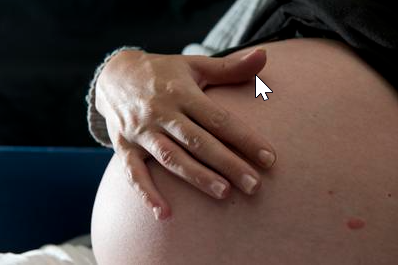New study to find underlying causes of maternal asthma and being overweight during pregnancy on the origin of asthma in early life

Researchers from the schools of Clinical and Experimental Sciences, Human Development and Health and Biological Sciences at the University of Southampton are to begin a new study investigating the underlying causes of asthma starting before birth and into early childhood.
The pro-inflammatory environment in women with allergic asthma and those with increased BMI during pregnancy is a risk factor for children to develop asthma in later life. How maternal asthma and being overweight contribute to the development of asthma in children is not fully understood.
This study will test how the mothers’ asthma and being overweight (having a body mass index (BMI) score of more than 25) during pregnancy changes asthma related mediators of inflammation and immune response in the fluid that surrounds the baby in the womb (amniotic fluid), blood and placenta, collected during elective caesarean birth.
Dr Hans Michael Haitchi, Associate Professor in Respiratory Medicine, and Dr Alexandra J Kermack, Clinical Lecturer in Obstetrics & Gynaecology will lead the research, which is being funded by the British Medical Association (BMA) Foundation for Medical Research with the James Trust grant 2022 for research into asthma.
The study is part of the ongoing Maternal Environment in Pregnancy (MEP) study at the University Hospital Southampton.
Dr Haitchi said: “Several possible asthma mediators will be analysed together with clinical data from mums and babies using multiple novel research techniques. This may help us to explain why boys and/or girls born to asthmatic mothers who are overweight have an increased risk of developing asthma.”
The new grant has been awarded to Drs Haitchi, Kermack, Coleman, and Dr Rob M Ewing, Associate Professor in Proteomics and Systems Biology, all from the University of Southampton.
The researchers are thankful to the midwives, nurses, clinical trial assistants and technicians as part of the MEP study research team and, in particular, to the pregnant mothers who are participating in this exciting research project.